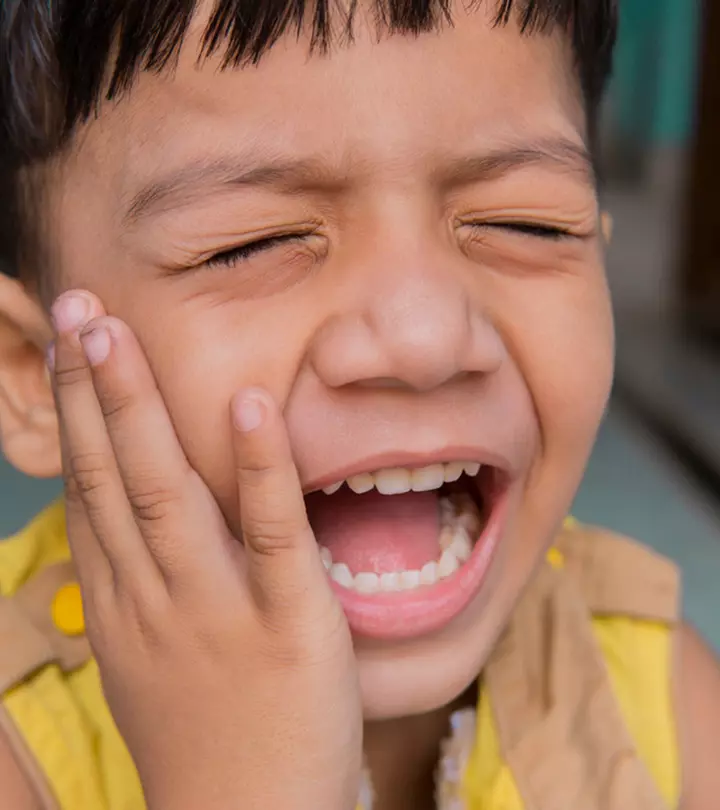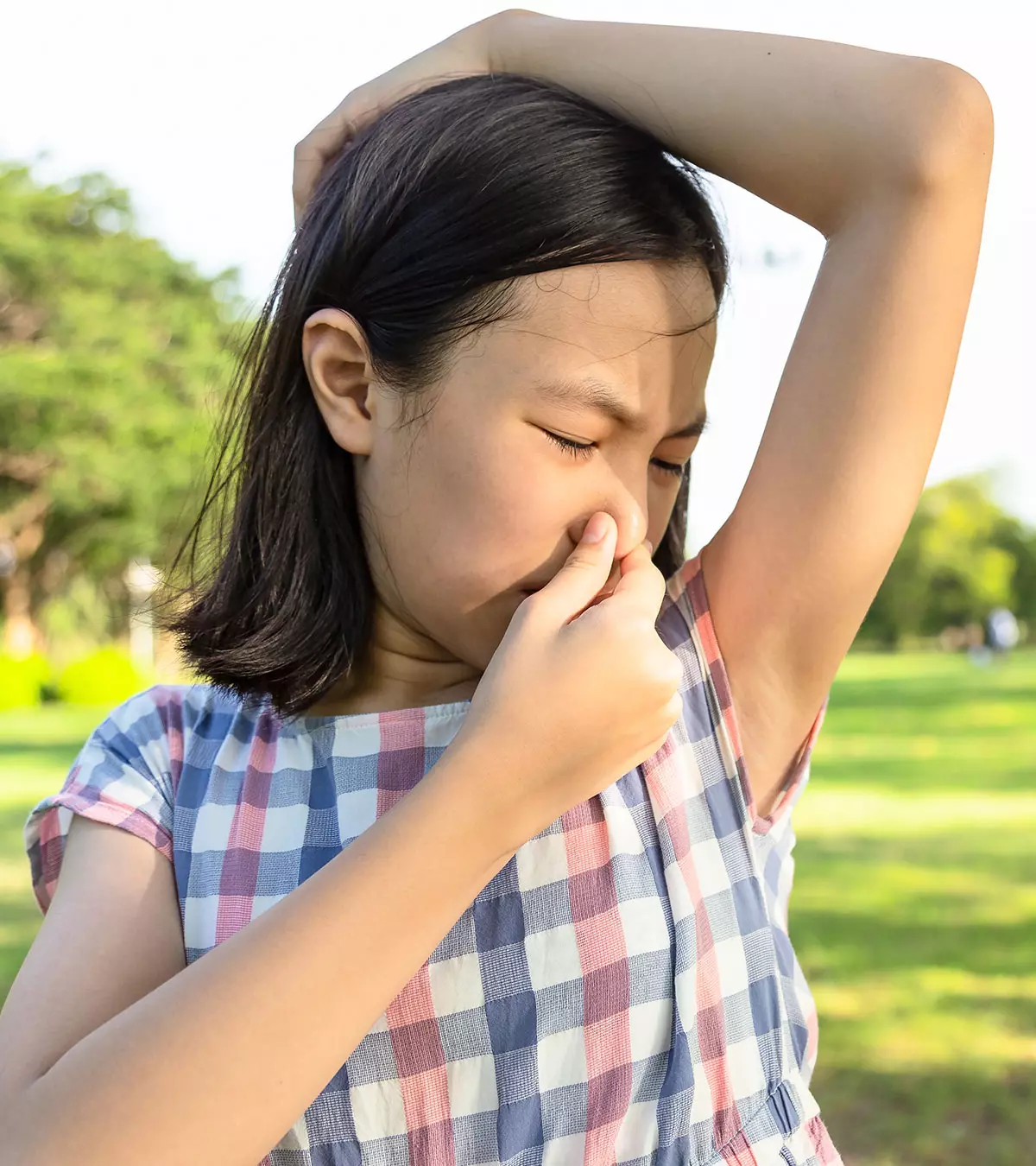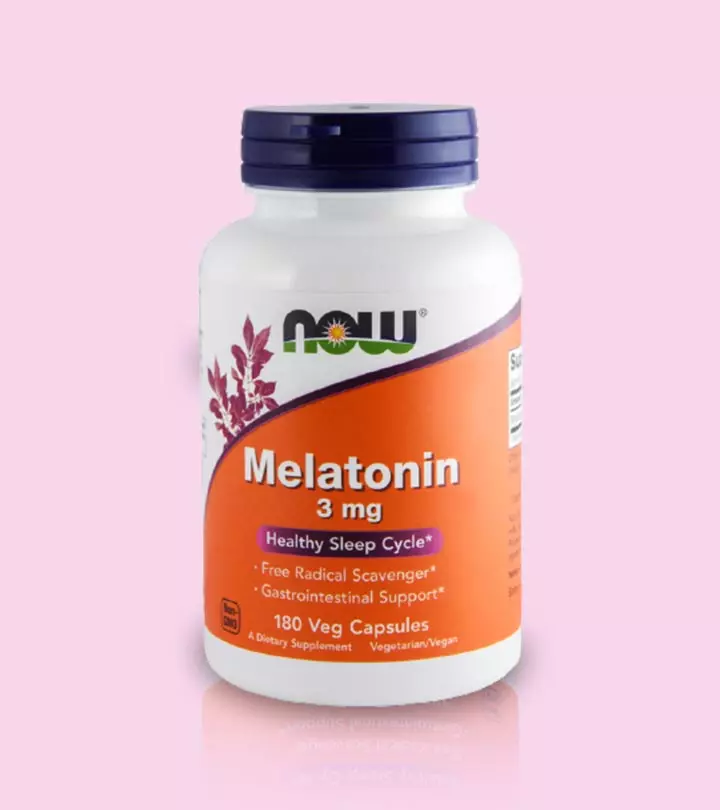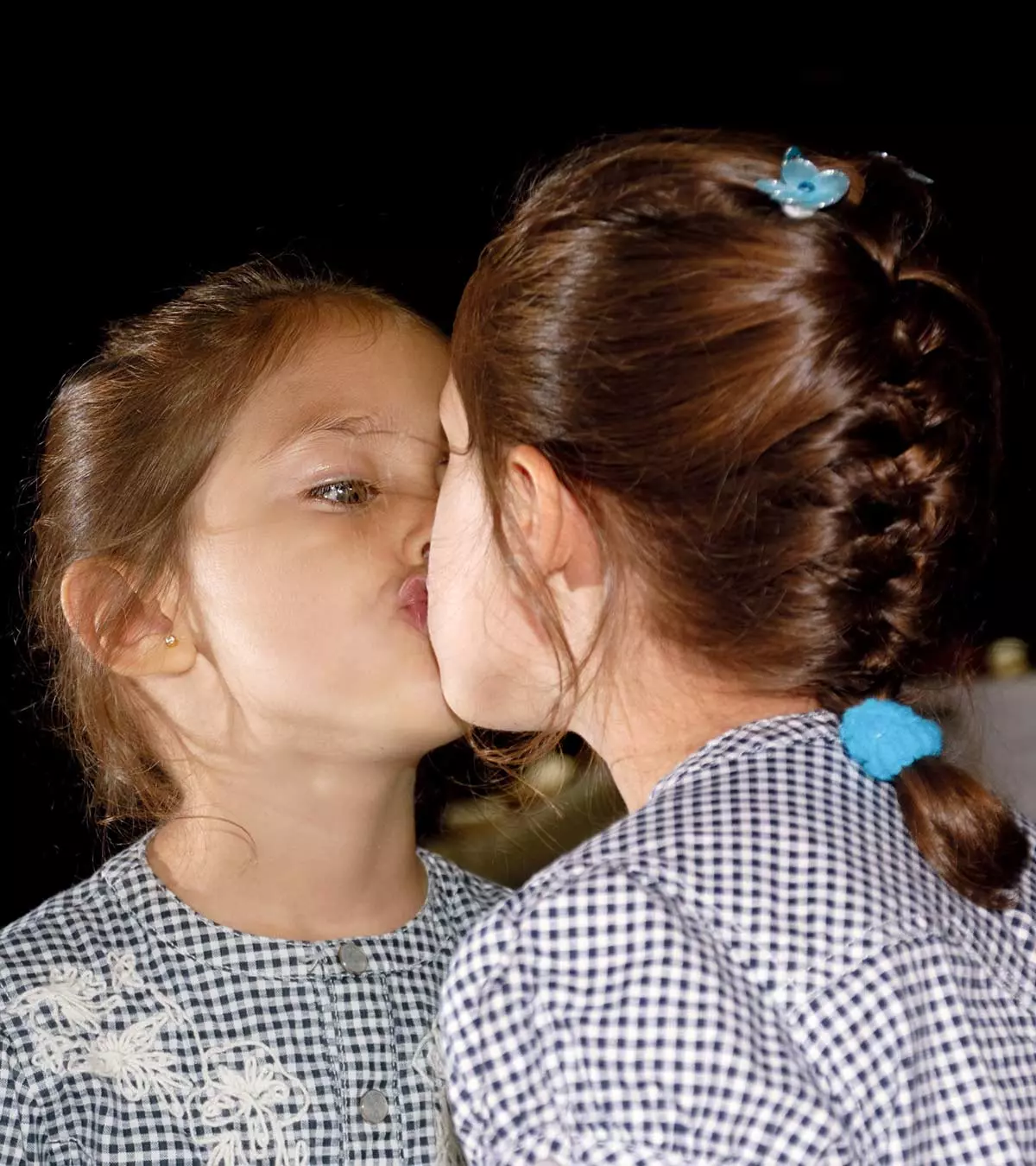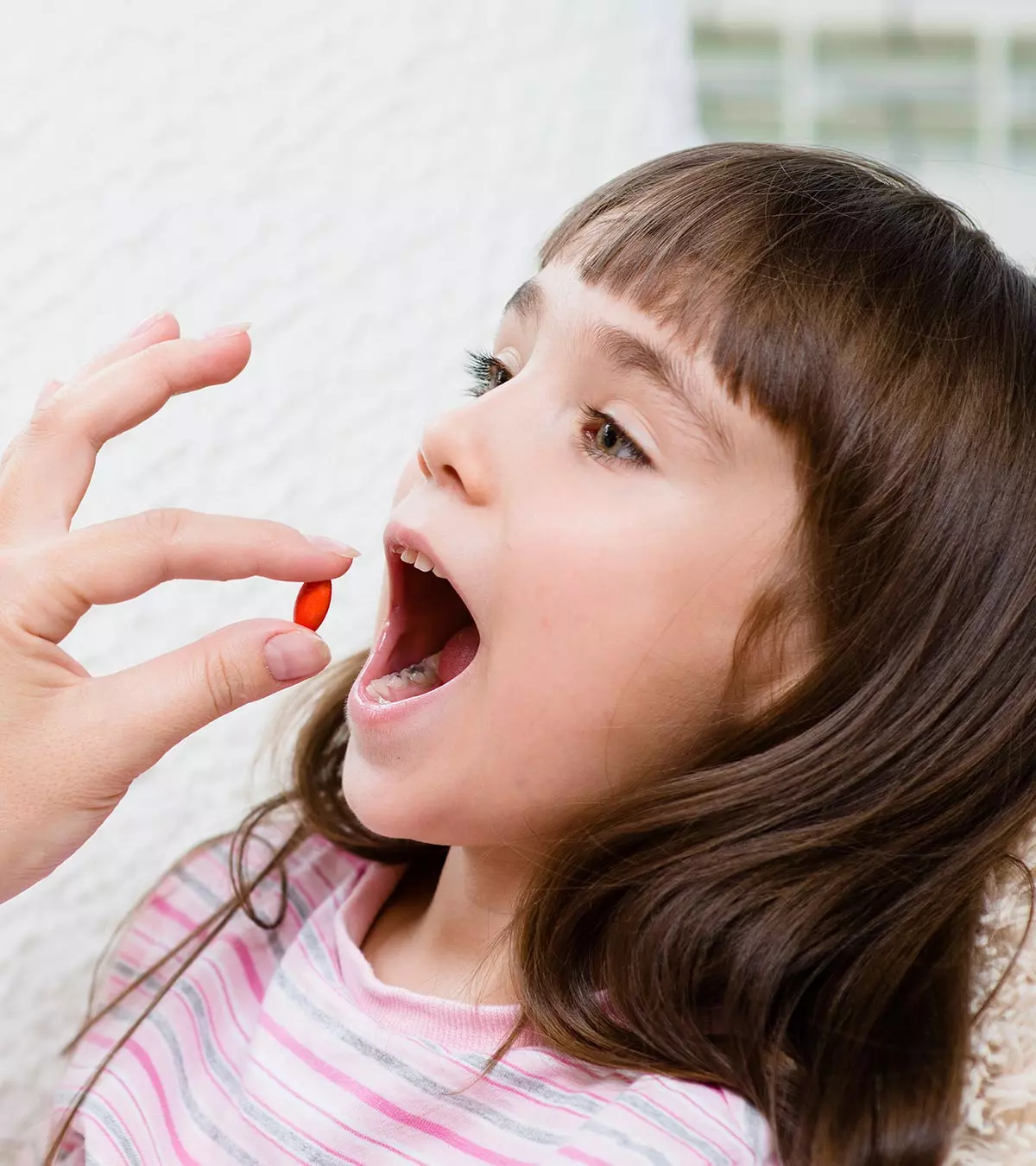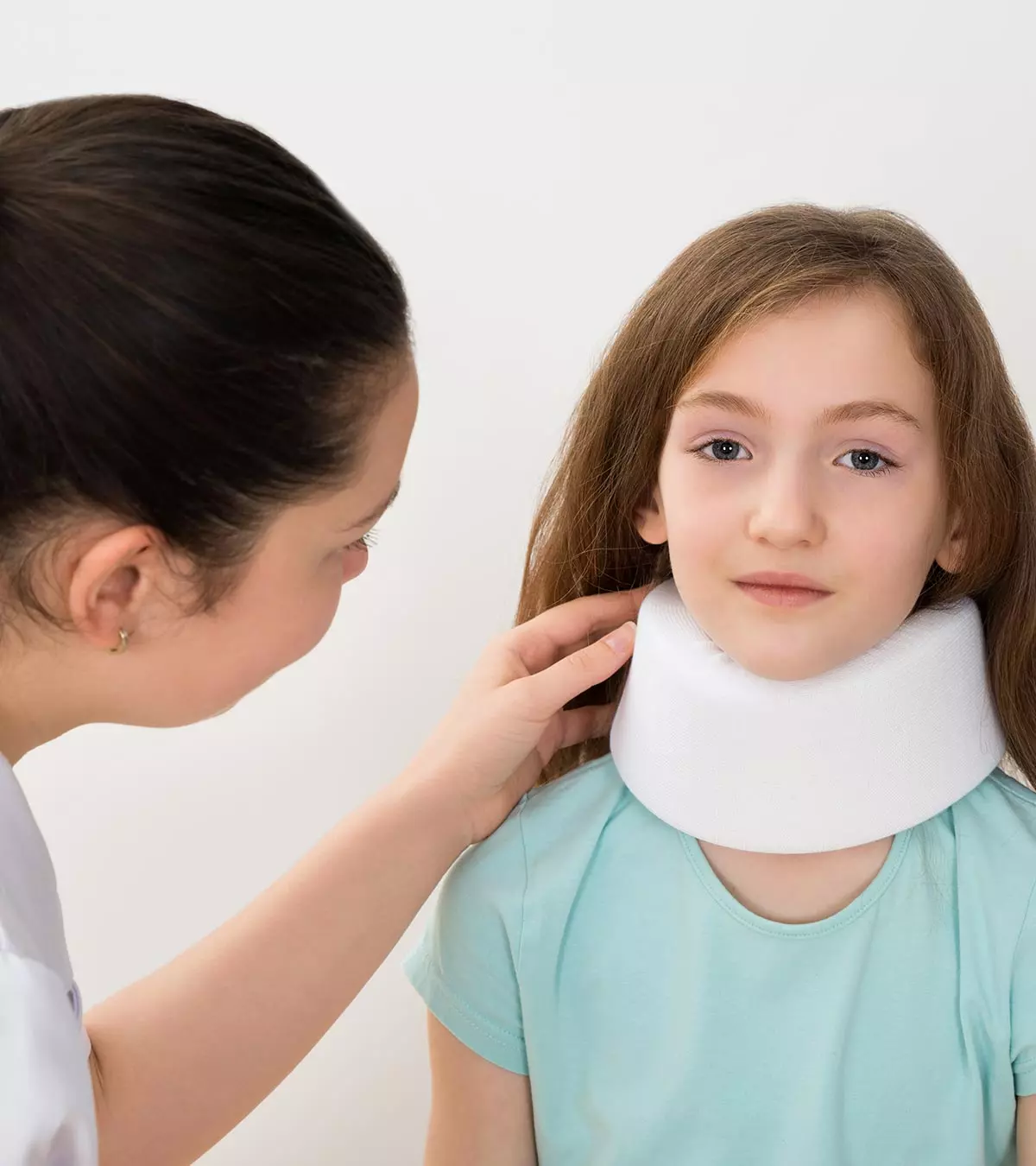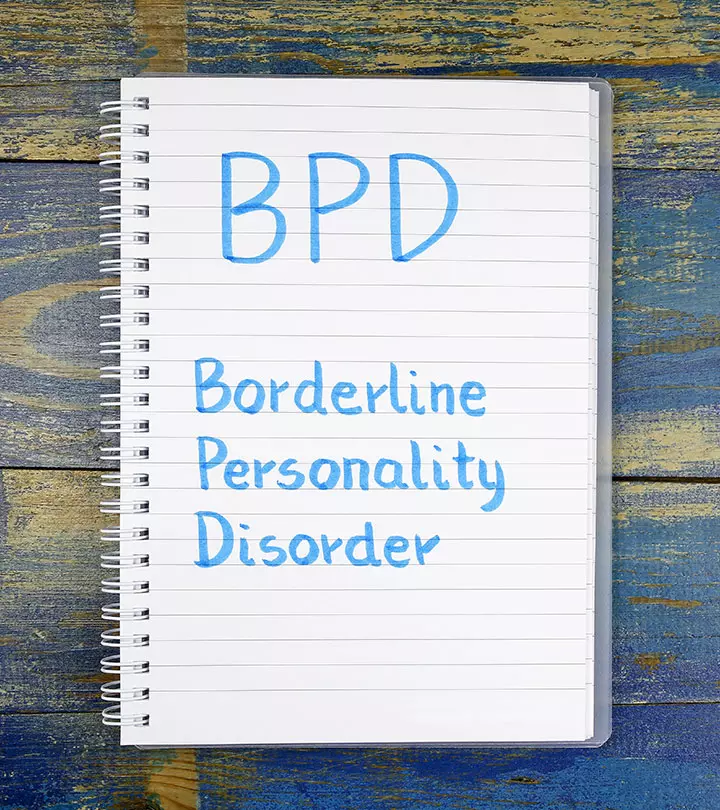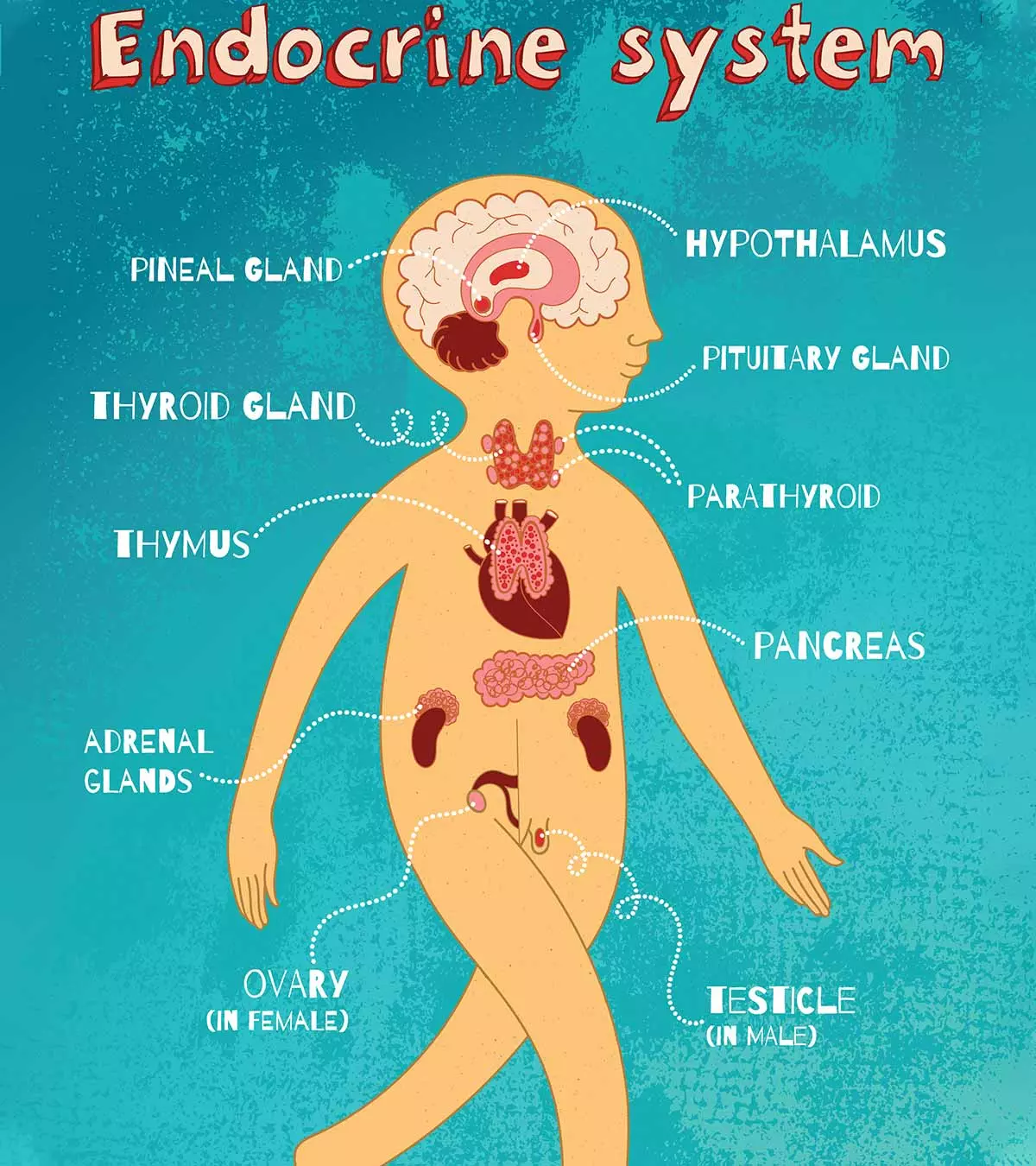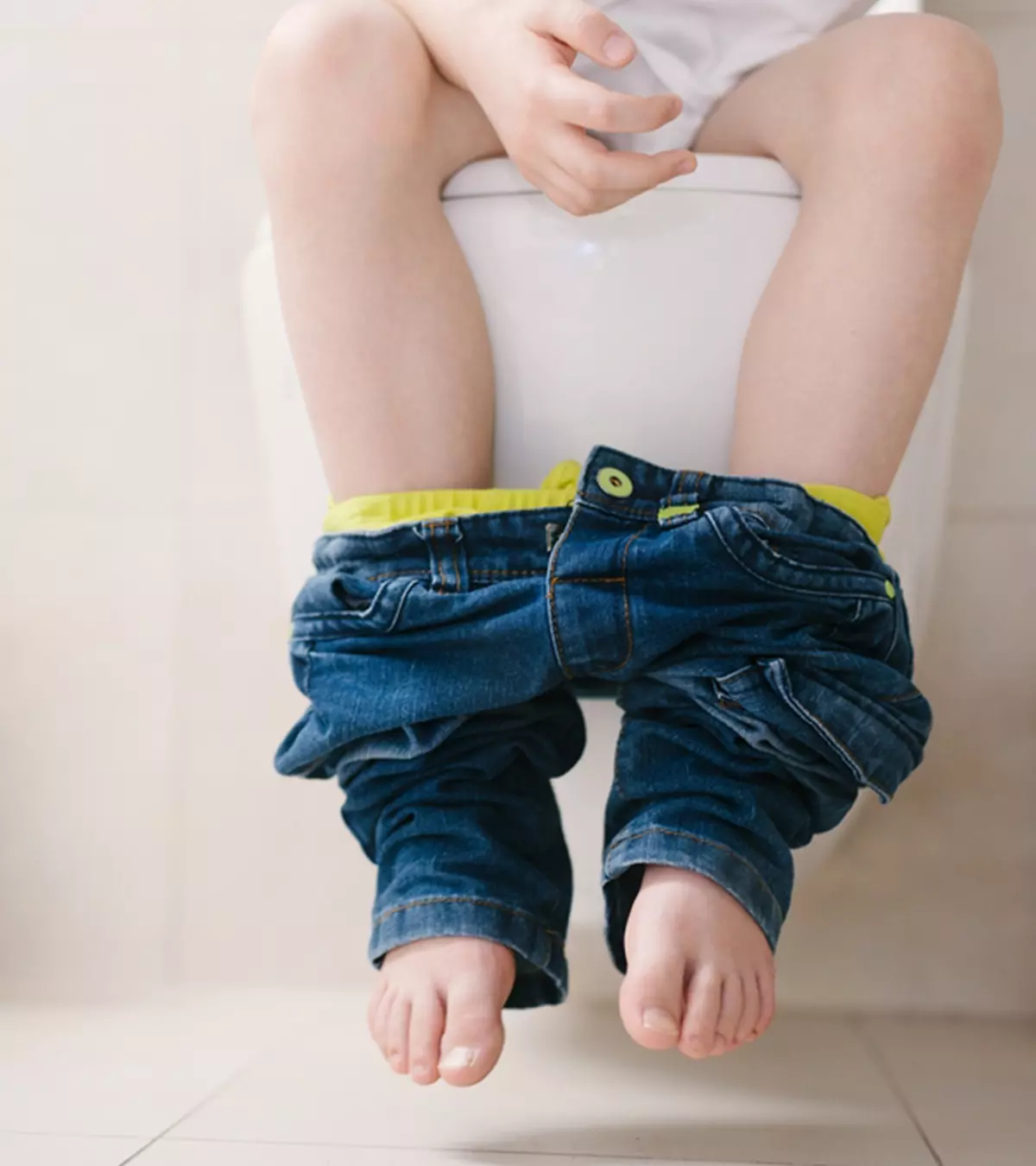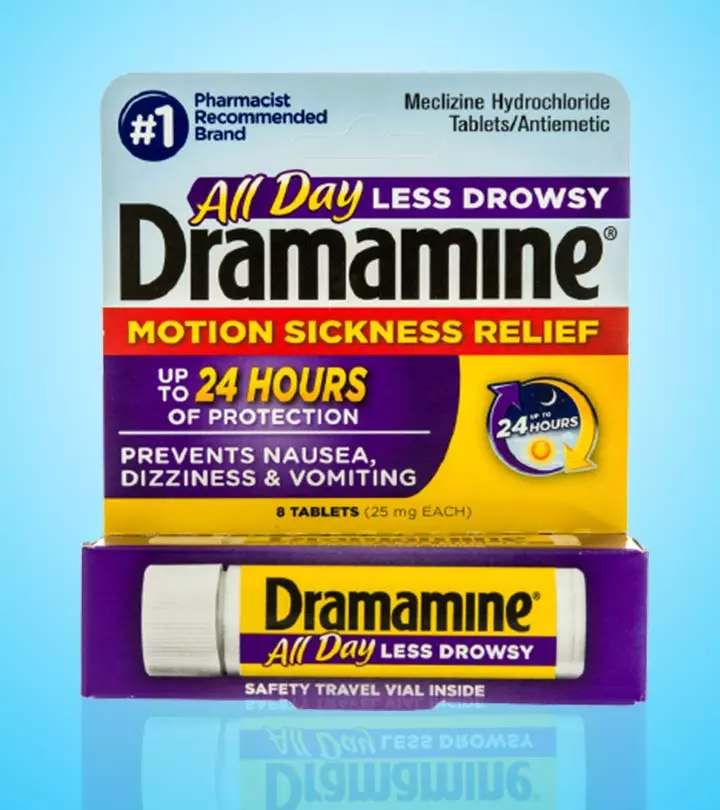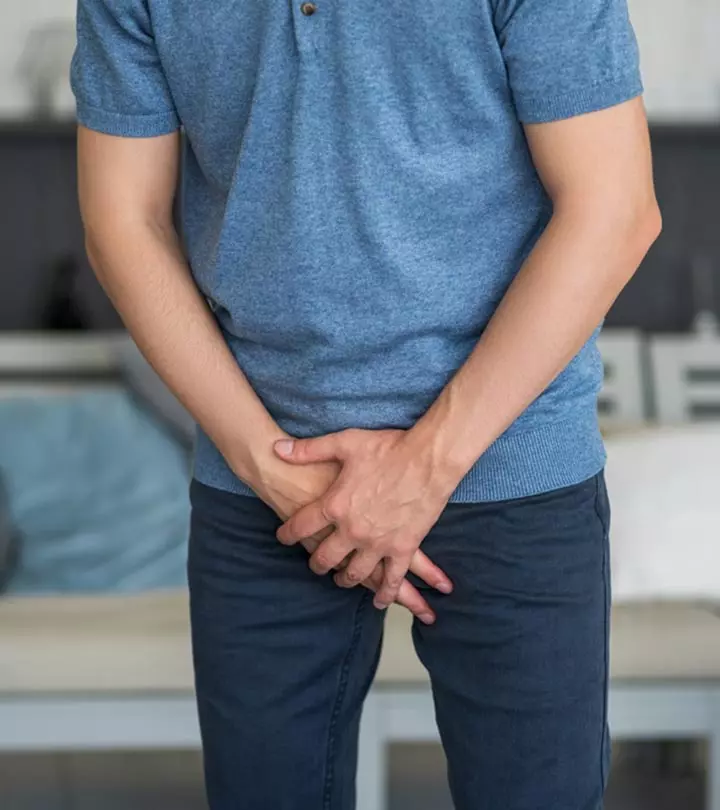
Image: Shutterstock
Testicular pain in teens could be experienced as a sudden pain in the scrotum or testicular region. The pain may occur for short periods (acute-lasting for around three months) or persist for longer durations (chronic). It may happen in one or both testicles. The testicular pain and discomfort in teenagers may be due to several reasons.
Read on as we explain the possible causes, symptoms, treatments, and management methods for teenage testicular pain.
Key Pointers
- Testicular pain or acute scrotum is common in males below 25 and can be caused by injury, infection, inflammation, or other medical conditions.
- Pain may be accompanied by swelling, tenderness, nausea, and fever.
- When the pain is unrelenting, it should be diagnosed and treated by a medical professional.
- Treatment options for testicular pain may include applying ice packs, over-the-counter pain medications, antibiotics (for infection), or surgery (in rare cases).
Symptoms Associated With Testicular Pain In Teens

Image: IStock
Symptoms can be seen in one or both testicles and may vary depending on the cause. Some of the common signs and symptoms that occur along with testicular pain include (1) (2):
- Swelling or redness of the scrotum
- Scrotal tenderness or tenderness of testicles
- Abdominal pain
- Enlargement of testicles
- Nausea
- Vomiting
- Fever
- Painful urination
- Pain during ejaculation (release of semen)
- Penile discharges
- Hematuria (blood in urine)
- Hematospermia (blood in semen)
- Increased heart rate
Testicular pain and swelling are also called acute scrotum. The sudden onset of severe testicular pain in teenage boys can be due to testicular torsion, and it needs emergency medical care (3).
What Can Cause Testicular Pain In Teenagers?
The most common causes of testicular pain in teens can be the following conditions (4).
- Testicular torsion: In this dramatic, serious and emergency condition, the spermatic cordiA system of nerves, blood and lymph vessels, and ducts that stretches from the abdomen to the testicles. rotates, gets twisted, and might result in the loss of blood supply to the testes. While the reasons are not completely known, the condition should be treated within six to 12 hours since the lack of blood flow can cause permanent damage to the testicles.

Image: IStock
- Testicular trauma: The sudden onset of severe testicular pain in teenage boys can be due to torsion of testicles, which needs emergency medical care. Rarely, the injury could result in a testicular rupture that requires surgical repair.
- Infections such as epididymitis or orchitis: It consists of bacterial and viral infections of the testicles and epididymis (tubes that connect testicles to vas deferens, which carry sperm). ChlamydiaiA bacterial infection spread through oral, anal, or vaginal intercourse. or gonorrheaiAn infection of the genitals, rectum, and throat spread through sexual contact. infection can be the cause of infection in sexually active teens. Mumps virus may also cause testicular infection and is more common in children under ten years of age.
- Hernias: An inguinal hernia can cause protrusion of fatty tissue or intestines through muscles in the groin area. It can cause groin pain and a bulge in the groin or scrotum.
- Hydroceles, spermatocele, and varicocele: These are fluid accumulations around the testes (hydroceles), enlarged vein (varicocele), or fluid-filled cysts (spermatoceles). This may cause scrotal pain and discomfort.
- Testicular tumor: Testicular tumors may also cause pain in one or both the testicles.
- Nephrolithiasis: Kidney stone pain may radiate to the testicular area in some adolescents.
 Quick fact
Quick factSeek medical care for the exact diagnosis and treatment of conditions causing testicular pain in your teen. The severity of pain may vary depending on the causing factors.
Who Is At A Greater Risk Of Having Testicular Pain?
Certain factors could increase the risk of testicular torsion, which is the leading cause of severe acute testicular pain. This may include (5):
- Age: Teen boys may have an increased risk for testicular torsion. It is rare after the age of 25 years.
- Family history: Positive family history may be linked to testicular torsion.
- Sports injuries: Torsion of testicles may happen during sports activities if the testicles are not protected with cups. However, many boys get this even when they sleep.
- Unprotected sex: This can be the result of chlamydial and gonorrheal infections.
 Quick fact
Quick factWhen To Call The Doctor?
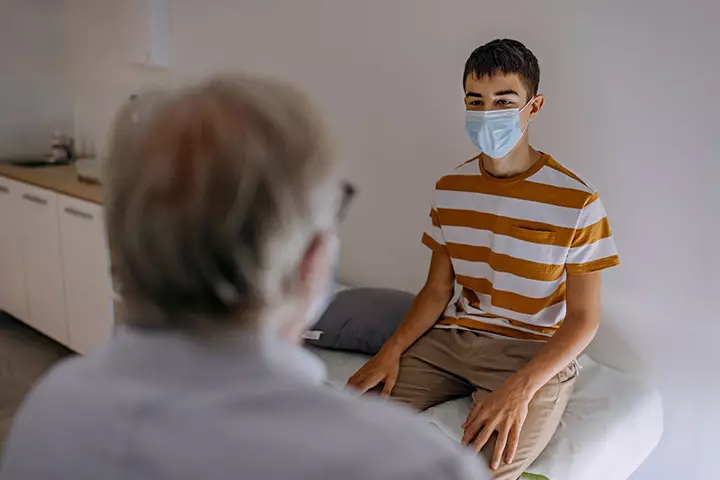
Image: IStock
If your teen has testicular or scrotal pain, then visit the emergency room soon. Early intervention could help, especially if the pain is due to testicular torsion that may cause permanent injury when left untreated for several hours.
Dr. David Valero, a board-certified integrative pediatrician based in Chicago, Illinois adds, “If your teenager experiences intense and abrupt pain, swelling, redness, or a lump in the testicle, or if they have suffered any form of trauma or injury to the testicles, it is crucial to seek medical attention. Moreover, if the testicular pain lingers for multiple days or fluctuates periodically, or if it is accompanied by symptoms such as fever, nausea, vomiting, or blood in the urine, it could signify a more grave underlying condition. Immediate medical assessment is vital to evaluate potential harm or complications.”
Treatment during the first six hours from the onset of testicular pain has a 90% chance to save the testicle, whereas this can decrease to 10% in 24 hours after the start of pain (1).
Medical Specialists To Treat Testicular Pain In Teenagers
The primary care physician could make a referral to the following specialists for evaluation and treatment.
- UrologistsiA doctor who diagnoses and treats diseases of the urinary tract.
- General surgeons
- OncologistsiA doctor who diagnoses and treats cancer.
Your teen’s referrals are made based on the symptoms, physical examination, or after performing necessary diagnostic tests.
Diagnosing Testicular Pain In Teenagers

Image: Shutterstock
After a detailed assessment of symptoms and physical examination, your teen’s doctor may order some of the following tests to identify the cause of testicular pain (6).
- Blood tests may help identify any inflammatory markers in the blood.
- UrinalysisiA urine test. and urethral swab are useful to test for urinary or genital infection especially if penile discharges are present.
- A kidney ultrasound is helpful to visualize kidney stones.
- Testicular ultrasound may help assess the blood flow to the testicles in the cases of testicular torsion. It may also give a diagnosis of testicular rupture, cancerous tumors, hematocele (collection of blood), or epididymis.
- Nuclear imaging can help assess the testicles in testicular torsion by comparing the distribution of special dyes.
In a few cases, if the testicular torsion is suspected, then after necessary tests, your teen may receive surgery without any further imaging tests.
Treating Testicular Pain In Teenagers
The following treatments can be given after the evaluation, depending on the cause of testicular pain (7) (8) .
- Pain relievers: This could include anti-inflammatory medications.
- Rest and application of ice packs: Minor injuries can be treated with rest and ice packs along with pain medications, as per doctors’ recommendations.
- Antibiotics: Antibiotic prescription for 10 to 14 days may be provided in the case of orchitisiInflammation of one or both testicles. or epididymitis to fight infection.
- Support for the scrotum or scrotal elevation: Pain relief due to elevation of the scrotum is called Prehn’s sign. Acute idiopathic scrotal edema, which is the swelling of the scrotum without tenderness, may need elevation of the scrotum for the management.
 Quick tip
Quick tip- Surgery: Testicular torsion requires immediate surgery, which may include untwisting of the testicles and orchiopexy that is fixing the testicles to the scrotal wall. Sometimes, the surgeons may perform manual untwisting before surgery. Testicular rupture, hematocele, penetrating injuries, and testicular tumors may also require surgical treatment.
- Treatment of renal problems: Kidney stones can be treated with medications or through lithotripsy, which is a medical procedure to break kidney stones.
- Other treatment options for chronic pain may include adjusting medication, pelvic floor physical therapy, acupuncture, and making changes to diet and lifestyle.
 Quick fact
Quick factHome treatments and over-the-counter medications are not recommended to treat testicular pain before identifying the cause. Ibuprofen (Advil) and Tylenol may give temporary pain relief. However, seek emergency care if your teen has testicular pain. It is vital as the absence of prompt diagnosis and treatment may lead to testicle loss. According to the American Academy of Pediatrics (APP), 30-40% of testicular torsion cases lead to testicle loss.
Tips To Prevent Testicular Pain In Teenagers

Image: IStock
Some causes of testicular pain can be prevented by taking these measures (9) (10).
- Vaccination against mumps virus to reduce the risk for viral orchitis
- Wear protective cups or other protective clothing during sports activities
- Using condoms could minimize the risk of sexually transmitted infections or diseases
 Quick tip
Quick tipThe regular self-examination of the testicles could help identify lumps of testicular tumors. It can help seek early diagnosis and treatment for better outcomes. Speak to the doctor to help the teen understand the correct way of self-examining the testicles.
Frequently Asked Questions
1. Can testicular torsion fix itself?
Rarely, testicles can twist and then untwist by themselves. It usually occurs if the teen has intermittent torsion, where the pain occurs suddenly and then gets better. This may not improve the condition, and the testicles can be prone to long-term damage. Therefore, seek medical attention if your teen has testicular pain (5).
2. What if a testicle needs to be removed?
Orcheotomy or surgical removal of the testicle is done for severe testicular torsion with damage to testicle due to loss of blood supply. The production of the hormone testosterone and the reproductive function can be carried out by single testes. However, torsion may cause infertility in some boys.
Although one testicle can perform the functions, testicular implants can be surgically placed to improve aesthetic appearance or if a teen has emotional difficulties in accepting a single testicle (5).
3. What should parents do?
It can be awkward for some parents to discuss genital anatomy, sexual health, puberty, and adolescent development with their teens and preteens. However, you can make them understand that the pain in their genitals can be an emergency, and they should not hide it from you.
You may assure them that it is a part of growing up, and there is nothing to be embarrassed or ashamed about. Encourage them to inform you about any testicular pain since early treatment is the best way to prevent permanent damage or loss of testicles (5).
4. How long can testicle discomfort last in teens?
Medication can help relieve the pain in about 6–12 hours. However, if no medicine or expert consultation is sought, the rising pain may cause long-term problems (4).
5. What does a testicular torsion feel like?
For a teen boy, testicular torsion feels like a severe and sudden pain in the scrotum. Furthermore, there may be incidences of swelling in and around the scrotum leading to severe abdominal pain in teens (4).
6. Does testicular torsion hurt immediately?
Yes. A boy will typically be able to understand the pain in the scrotum almost immediately after sustaining the rupture (4).
7. Can sitting too long cause testicular pain?
Sitting for prolonged periods of time can cause discomfort and pain in various parts of the body, including the testicles. Prolonged sitting can lead to poor circulation, and this can cause discomfort or pain in the testicles. Additionally, sitting for long periods of time can also put pressure on the nerves and blood vessels in the groin area, which can cause testicular pain (14).
8. Is experiencing testicular pain a normal occurrence during puberty?
Dr. Valero says, “Experiencing testicular pain should never be viewed as ‘normal’ during puberty or any other life stage. Although it’s possible for boys to occasionally feel sensitivity or discomfort in their testicles due to hormonal changes and growth, it’s crucial to differentiate between typical sensations and actual pain. Any significant or persistant testicular pain should never be ignored or dismissed. If a boy encounters such pain, it is imperative to act promptly and diligently by seeking medical attention from a healthcare professional.”
9. Is it possible for testicle pain to resolve itself naturally?
Dr. Valero opines, “In some cases, testicle pain can go away independently, primarily caused by minor issues or temporary factors. For example, mild discomfort or pain resulting from strains, minor injuries, or certain infections may resolve without requiring specific medical treatment. In such cases, self-care measures can help relieve the pain and promote healing. These measures may involve taking rest, applying ice packs to the affected area, wearing supportive underwear, and avoiding activities that worsen the pain.”
Trauma from sports injuries and infections due to unprotected sex can cause pain in the testicles of teens, and the symptoms might vary depending on the cause. It can affect one or both testicles. While pain relievers may provide temporary relief, they will not solve the underlying issue. Therefore, it’s essential to contact a doctor if you have accompanying symptoms such as nausea and vomiting, hematuria, fever, or edema that may necessitate going to the emergency room. Prompt medical attention can aid in the rapid treatment of this condition without causing complications. Moreover, taking preventive measures like wearing protective gear when participating in sports can minimize the risk of testicular pain in teenagers.
Infographic: Is Surgery Needed For Testicular Pain In Teens?
Surgery is not required to cure testicular pain in all cases. The surgical procedure may vary depending on the teens’ underlying cause of testicular pain. Some conditions get better with medications. However, conditions requiring surgical repair may not resolve until the procedure is done. Go through the infographic to know the surgeries performed to reduce testicular pain. Illustration: Momjunction Design Team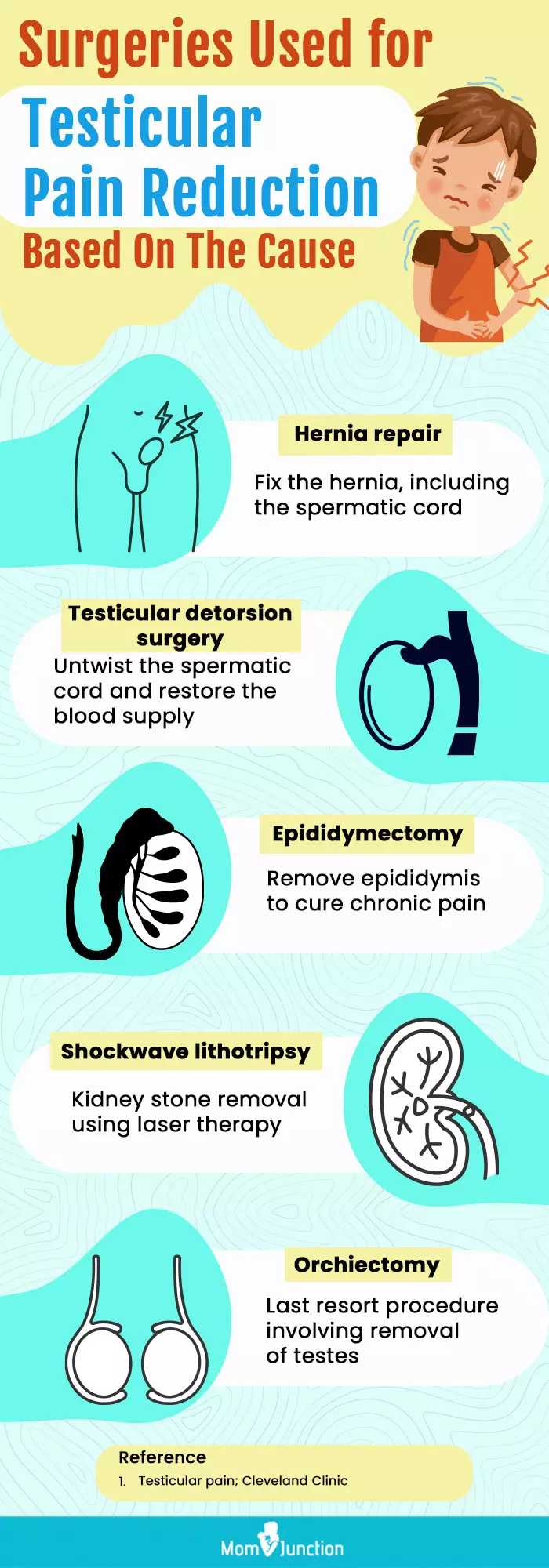
Illustration: Causes Of Testicular Pain In Teenagers & When To Seek Help

Image: Stable Diffusion/MomJunction Design Team
Numerous reasons could lead to testicular pain. Check out this informative video explaining exactly why this may occur and how such situations should be managed.
References
1. Testicular torsion; Brenner Children’s Hospital
2. Testicular conditions; The Department of Health; The government of Western Australia
3. Testicle Pain in Kids and Teens: Don’t Wait, Act; Cincinnati Children’s Hospital Medical Center
4. Testicular Pain; The University of California, San Francisco (UCSF)
5. Testicle Pain & Testicular Torsion; HealthyChildren; The American Academy of Pediatrics
6. Stephen M. Graham and John M. Gatti; Painful testicle in a young boy; The United States National Library of Medicine (NLM)
7. Chirag G Gordhan and Hossein Sadeghi-Nejad; Scrotal pain: Evaluation and management; The United States National Library of Medicine (NLM)
8. Chronic Testicular Pain and Orchalgia; The United States National Library of Medicine (NLM)
9. Testicle injuries and conditions; BetterHealth; Victoria State Government
10. Testicle pain; The United States National Library of Medicine (NLM)
11. Undescended testes; The Royal Children’s Hospital Melbourne
12. Testicular Torsion; Kids Health From Nemours
13. Wei Phin Tan and Laurence A Levine; What Can We Do for Chronic Scrotal Content Pain?; NCBI
14. Testicular torsion – what all men and boys should know; Queensland Health Government
Community Experiences
Join the conversation and become a part of our nurturing community! Share your stories, experiences, and insights to connect with fellow parents.
Read full bio of Dr. Nikolina Zdraveska
- Dr. David Valero is a board-certified integrative pediatrician based in Chicago, Illinois, with six years of experience. He received his medical degree from Pontificia Universidad Javeriana in Bogotá, Colombia, a residency program at Lincoln Hospital in New York City, and a fellowship at The Academy of Integrative Health & Medicine in La Jolla, California.
 Dr. David Valero is a board-certified integrative pediatrician based in Chicago, Illinois, with six years of experience. He received his medical degree from Pontificia Universidad Javeriana in Bogotá, Colombia, a residency program at Lincoln Hospital in New York City, and a fellowship at The Academy of Integrative Health & Medicine in La Jolla, California.
Dr. David Valero is a board-certified integrative pediatrician based in Chicago, Illinois, with six years of experience. He received his medical degree from Pontificia Universidad Javeriana in Bogotá, Colombia, a residency program at Lincoln Hospital in New York City, and a fellowship at The Academy of Integrative Health & Medicine in La Jolla, California.
Read full bio of Dr Bisny T. Joseph
Read full bio of Swati Patwal
Read full bio of Anindita Ghatak









